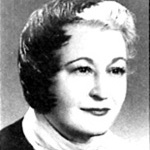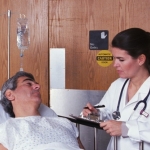 Model D. Orem
Model D. Orem

Introduced in 1971, Dorothea Orem's model is based on the principles of self-care , or self-care.
In this model of nursing, 3 groups of needs for self-care are distinguished:
1. Universal:
- sufficient intake of air, liquid, food;
- sufficient opportunities for allocation and process-related needs;
- balance between activity and rest, between communication and loneliness;
- prevention of danger to life and normal life in good health;
- the desire to correspond to a certain social group, based on individual capabilities.
2. Associated with the stage of development : according to the age of the patient.
3. Associated with health disorders:
- anatomical (eg, integrity damage, edema, amputations);
- physiological (for example, shortness of breath, pain, heart rhythm disturbance);
- behavioral (eg, apathy, insomnia, mood swings).
Nursing process and D. Orem model: application
1. Patient - a single whole, a harmonious personality, striving for self-care.
2. The source of the patient's problems is the patient's inability to self-care, the need for outside help.
3. The goal of care is to identify the patient's opportunities for self-care, to create conditions for the disclosure of these opportunities.
4. Direction of aid:
- clarification of the reasons for the lack of self-care;
- determining the level of the patient's requirements for self-care;
- assess the patient's capabilities;
- assessment of the degree of patient safety in the implementation of self-care;
- assessment of the patient's ability to restore self-care activities.
5. The Role of the Nurse:
- assistance in mastering the patient's self-care skills;
- monitoring the patient's self-care;
- patient care as an adjunct to self-care.
6. Interventions - aims to increase self-care options and change the level of self-care needs. The conceptual model of D. Orem offers the following methods of nursing interventions:
- perform actions for the patient;
- guide the patient in his actions, guide him;
- provide support - physical and psychological;
- create conditions for opportunities for self-care;
- teach self-care techniques to the patient and his relatives.
The patient must be willing to accept assistance in learning self-care. The nurse will help you:
- compensatory - when the patient is unable to self-care;
- partially compensating - with limited capabilities of the patient;
- advisory - training the patient and relatives in self-care techniques.
7. Outcome is measured as progress in self-care by the patient. Nursing care is considered effective in maintaining or restoring the balance between the capabilities and needs of the patient. If the nurse has made the transition from compensatory care to the patient to partially compensatory care, the result is positive.




